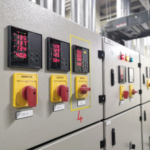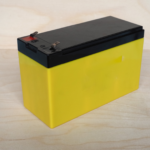A UPS, or Uninterruptible Power Supply, is an electrical device that provides backup power to connected devices or systems in the event of a power outage or voltage fluctuations. It serves as a safeguard against power disruptions and ensures the uninterrupted operation of critical equipment, protecting them from potential damage or data loss.
The primary function of a UPS is to supply a continuous and stable power source to devices, even when the main power supply fails. It consists of three key components: a battery or battery bank, an inverter, and a rectifier.
When the main power supply is functioning correctly, the UPS operates in standby mode. During this time, the rectifier component converts alternating current (AC) power from the wall outlet into direct current (DC) power to charge the battery. Simultaneously, it supplies the connected devices with the incoming AC power.
When a power outage occurs or the voltage level deviates from the acceptable range, the UPS immediately detects the disruption. It swiftly switches to battery power through the inverter component. The inverter converts DC power from the battery into AC power, allowing the connected devices to continue receiving power seamlessly. The switchover process is typically swift and automatic, ensuring a smooth transition without interruptions or disruptions.
The battery component of the UPS is crucial in providing temporary power during outages. The size and capacity of the battery determine how long the UPS can sustain the connected devices. Larger UPS systems, commonly used for critical applications like data centers or medical facilities, may have external battery packs or multiple batteries to extend the backup runtime.
UPS systems come in various sizes and types to cater to different power requirements. They range from small, portable units designed to power a single computer or home office equipment to large-scale systems capable of supporting entire buildings or industrial facilities.
Besides providing backup power during outages, UPS systems offer additional benefits. They act as a line conditioner by regulating the voltage and smoothing out power surges, spikes, or sags, protecting connected devices from potential damage caused by fluctuating electricity. Additionally, UPS systems often include surge protection to guard against transient voltage surges.
UPS systems are utilized in a wide range of applications and industries. They are commonly employed to protect computers, servers, networking equipment, telecommunications systems, medical devices, industrial machinery, and critical infrastructure. By ensuring continuous power availability, UPS systems help maintain productivity, prevent data loss, and protect sensitive equipment from potential harm.
In summary, a UPS is a vital device that provides backup power to connected devices or systems in case of power disruptions. It safeguards against power outages, voltage fluctuations, and transient surges, ensuring uninterrupted operation, data protection, and equipment longevity.





